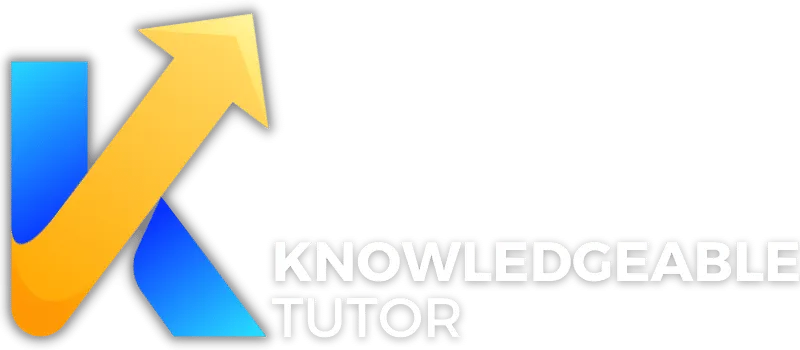Ethical Practices in Online Tutoring

Fanie Naude
CEO & Founder of Knowledgeable Tutor, Buznet Direct, YMC & Naude Consulting

Fanie Naude
CEO & Founder of Knowledgeable Tutor, Buznet Direct, YMC & Naude Consulting
In This Article
Introduction: Navigating the Ethical Labyrinth of Online Tutoring
Section 1: The Landscape of Online Tutoring
Section 2: Ethical Considerations
Section 3: Technology and Ethics in Online Tutoring
Section 4: Tutor Responsibilities
Section 6: Strategies for Ethical Tutoring

Introduction: Navigating the Ethical Labyrinth of Online Tutoring
In the digital age, online tutoring has emerged as a cornerstone of modern education, offering unparalleled convenience and accessibility. However, this shift from traditional classrooms to virtual learning environments brings forth a plethora of ethical considerations that tutors must navigate diligently. As the renowned jurist Potter Stewart once said, "Ethics is knowing the difference between what you have a right to do and what is right to do." This article aims to serve as a comprehensive guide for tutors to understand and implement ethical practices in online tutoring. From academic integrity to technological dilemmas, we will delve into the nuances that make online tutoring a responsible profession.
In This Article
- The Landscape of Online Tutoring
- Ethical Considerations in Online Tutoring
- Regulatory Framework and Compliance
- Data Privacy and Security
- Academic Integrity and Plagiarism
- Inclusivity and Accessibility
- Marketing Ethics in Online Tutoring
- Case Studies: Ethical Dilemmas and Resolutions
- Future Prospects: Ethics in the Age of AI and VR
- Conclusion
- FAQs: Navigating the Ethical Landscape of Online Tutoring

Section 1: The Landscape of Online Tutoring
1.1 Evolution of Online Tutoring
The journey from chalkboards to digital screens has been nothing short of revolutionary. Online tutoring has evolved from simple email exchanges to sophisticated platforms featuring real-time video sessions, interactive whiteboards, and AI-driven analytics. This transformation has not only expanded the reach of tutoring beyond geographical boundaries but also introduced new ethical dimensions that tutors must consider.
1.2 Current Trends
As we venture further into the 21st century, several trends are shaping the future of online tutoring:
- Artificial Intelligence (AI): AI-driven platforms can personalize learning experiences but raise questions about data privacy and algorithmic bias.
- Virtual Reality (VR): Immersive learning environments offer unique educational experiences but may exacerbate the digital divide.
- Blockchain: This technology promises to secure credentials and academic records, yet its adoption is still in nascent stages.
These trends are exciting but come with their own ethical quandaries, which we will explore in subsequent sections.
1.3 Regulatory Framework
Navigating the legal landscape is crucial for maintaining ethical standards in online tutoring. Various laws and guidelines govern this domain:
- Family Educational Rights and Privacy Act (FERPA): Protects the privacy of student education records.
- Children's Online Privacy Protection Act (COPPA): Regulates the collection of personal information from minors.
- Americans with Disabilities Act (ADA): Ensures that educational materials are accessible to students with disabilities.
Compliance with these regulations is not just a legal obligation but also an ethical responsibility for online tutors.
1.4 The Role of Accreditation
Accreditation serves as a quality assurance mechanism in education. For online tutors, being associated with accredited organizations adds a layer of credibility and ethical responsibility. It ensures that the tutor adheres to nationally or internationally recognized standards, thereby enhancing the quality of education provided.
1.5 The Ethical Implications of Gig Economy
The rise of the gig economy in online tutoring has made it easier for anyone to become a tutor. While this democratizes education, it also raises concerns about the qualifications and ethical standards of tutors. Ensuring proper credentials and continuous professional development is essential for maintaining ethical integrity in this evolving landscape.
In the words of educational reformer John Dewey, "Education is not preparation for life; education is life itself." As we proceed, this article will delve deeper into the ethical considerations that are integral to online tutoring, aiming to equip you with the knowledge and strategies to conduct your online tutoring sessions responsibly.
Stay tuned as we unravel the ethical fabric of online tutoring in the subsequent sections, starting with a comprehensive look at the ethical considerations that every online tutor must be aware of.

Section 2: Ethical Considerations
Academic Integrity
Plagiarism, Cheating, and Prevention
Academic integrity is the bedrock of education. Plagiarism and cheating not only undermine the educational process but also tarnish the reputation of the tutor and the platform they represent. Tools like Turnitin can be employed to check for plagiarism. Moreover, tutors should cultivate an environment that discourages cheating and encourages original thinking.
Data Privacy
GDPR, COPPA, and Safeguarding Student Data
In the age of data breaches, safeguarding student data is not just a legal requirement but also an ethical obligation. Familiarity with regulations like GDPR and COPPA is essential. Secure platforms and encrypted communications are non-negotiables in ensuring data privacy.
Accessibility
Ensuring Equal Opportunities for All Students
Accessibility is not just about ramps and elevators; it's about ensuring that every student, regardless of their physical or cognitive abilities, has equal access to education. Online platforms should comply with ADA standards, and tutors should be trained in inclusive teaching methods.
For more insights on ethical practices, you can visit Ethical Practices in Online Tutoring.
Real-Life Example: Accessibility in Online Tutoring
A case in point is the University of California's initiative to make all their online courses ADA compliant. This move not only opened doors for students with disabilities but also set a precedent for other educational institutions to follow.
Parable: The Lighthouse and the Ship
Consider the ethical considerations in online tutoring as a lighthouse guiding ships (tutors and students) safely to the shore. Ignoring these ethical "beacons" can lead to shipwreck—be it in the form of legal issues, tarnished reputation, or ineffective tutoring.
Data-Backed Claims
According to a survey by Kaspersky, 34% of parents would consider hacking into their child's school computer for various reasons. This alarming statistic underscores the need for stringent data privacy measures in online tutoring.
Would you like to delve deeper into the ethical considerations in online tutoring? Feel free to explore the Ethical Practices in Online Tutoring section on our platform.

Section 3: Technology and Ethics in Online Tutoring
In the digital age, technology is not just a facilitator but also a challenge when it comes to maintaining ethical standards in online tutoring. As the saying goes, "With great power comes great responsibility," and this couldn't be more true for the technological tools that have become integral to online education. As Potter Stewart wisely said, "Ethics is knowing the difference between what you have a right to do and what is right to do."
1. Proctoring Software: Ethical Dilemmas and Alternatives
Ethical Dilemmas
Proctoring software has been a game-changer in ensuring academic integrity during online assessments. However, it also raises ethical concerns related to student privacy and data security. Some students feel that continuous monitoring through webcams is an invasion of their personal space.
Alternatives
Instead of relying solely on proctoring software, tutors can use a combination of methods to ensure academic integrity. For instance, open-book exams and timed quizzes can minimize the need for invasive monitoring.
- Related Reading: Ethical Practices in Online Tutoring
2. AI in Tutoring: Ethical Use of AI-Driven Tools
Ethical Concerns
AI-driven tools like automated grading systems and personalized learning paths are revolutionizing online tutoring. However, the ethical use of these tools is paramount. There's a risk of algorithmic bias and data misuse.
Responsible Use
Tutors should be transparent about the use of AI in their teaching methods and ensure that these tools meet ethical standards. For example, AI algorithms should be tested for bias, and data should be anonymized to protect student privacy.
- Further Insights: Tools and Technology for Effective Online Tutoring
3. Social Media: Ethical Guidelines for Online Interactions
The Double-Edged Sword
Social media platforms are excellent for marketing and student engagement. However, they also blur the lines between professional and personal interactions. As tutors, one must tread carefully.
Guidelines
- Professionalism: Maintain a separate professional account for tutoring services.
- Privacy: Do not share student information or achievements without consent.
Boundaries: Avoid discussing sensitive or controversial topics.
Learn More: Using Social Media for Your Online Tutoring Business
Real-Life Example
A case study by the Online Learning Consortium highlighted the ethical implications of using AI in online education. It emphasized the need for transparency and student consent when implementing AI-driven tools. Read the full case study here.
Parable
Think of AI as a new teaching assistant in your classroom. Just like you wouldn't allow the assistant to grade papers without understanding your grading criteria, you shouldn't allow an AI tool to operate without understanding its algorithms and ethical implications.
In conclusion, technology offers a plethora of opportunities for enhancing online tutoring, but it also comes with its set of ethical dilemmas. The key is to use technology responsibly and transparently, always keeping the best interests of the students in mind. As tutors, we must remember that "The time is always right to do what is right," as Martin Luther King Jr. put it.

Section 4: Tutor Responsibilities
In the realm of online tutoring, the onus of ethical conduct doesn't solely rest on technology or regulatory bodies; it significantly lies in the hands of the tutors themselves. As the adage by Peter Drucker goes, "Management is doing things right; leadership is doing the right things." This section delves into the responsibilities that tutors must shoulder to ensure an ethical online tutoring environment.
1. Code of Ethics
National and International Standards
Tutors must adhere to both national and international ethical standards. These standards often encompass guidelines on academic integrity, data privacy, and equal opportunity. For instance, the International Tutoring Association provides a comprehensive code of ethics that tutors worldwide can follow.
Key Points:
- Academic Honesty
- Confidentiality
- Professional Conduct
Internal Resources:
2. Continuous Learning
Staying Updated with Ethical Practices
The world of online tutoring is ever-evolving, and so are the ethical considerations that come with it. Tutors must engage in continuous learning to stay abreast of the latest ethical guidelines and technologies. For example, webinars, online courses, and workshops can serve as excellent platforms for this purpose.
Key Points:
- Regular Training
- Webinars and Workshops
- Online Courses on Ethics
Internal Resources:
- Tools and Technology for Effective Online Tutoring
- Maintaining Student Engagement in Online Tutoring
3. Transparency
Open Communication with Students and Parents
Transparency is the cornerstone of trust. Open lines of communication with students and parents are essential for ethical tutoring. This involves being upfront about tutoring methods, progress tracking, and any software or tools being used. As Warren Buffett wisely said, "Honesty is a very expensive gift; don't expect it from cheap people."
Key Points:
- Clear Tutoring Objectives
- Progress Reports
- Software Disclosure
Internal Resources:
In summary, the role of a tutor in maintaining an ethical online tutoring environment is multi-faceted and ever-evolving. It involves adhering to established codes of ethics, engaging in continuous learning, and maintaining transparency in all interactions. These responsibilities, when fulfilled, not only elevate the quality of education but also fortify the ethical foundations of online tutoring.

Section 5: Case Studies, Real-Life Examples, and Success Stories on Ethical Practices in Online Tutoring
As the saying goes, "Ethics is knowing the difference between what you have a right to do and what is right to do." - Potter Stewart. In the realm of online tutoring, ethical considerations are paramount. They not only shape the tutor-student relationship but also influence the quality of education delivered. Let's delve into some real-life case studies and examples that highlight the importance of ethical practices in online tutoring.
Case Study 1: Ethical Challenges in Online Teaching and Learning
A qualitative case study examines the ethical challenges of online teaching and learning in virtual classrooms. The study focuses on issues like academic integrity, student privacy, and the ethical use of technology. It serves as a cautionary tale for tutors to be vigilant about maintaining ethical standards while navigating the digital landscape.
Key Takeaways
- Importance of academic integrity
- Ethical considerations in using proctoring technology
- Balancing student privacy with effective learning
Case Study 2: Virtual Reality Education and Ethics
The Markkula Center for Applied Ethics explores the use of Virtual Reality (VR) in enhancing ethics and character education. This innovative approach allows students to experience historical or fictional scenarios, thereby enriching their ethical understanding.
Key Takeaways
- Innovative use of technology for ethical education
- Enhancing student engagement through VR
- Ethical considerations in the use of immersive technology
Case Study 3: Social and Ethical Issues During the Pandemic
This study delves into the social and ethical issues of online learning during the COVID-19 pandemic. It raises concerns about academic integrity, non-maleficence, trust, privacy, liberty, and autonomy in the use of proctoring technology.
Key Takeaways
- Ethical challenges exacerbated by the pandemic
- Importance of trust and privacy
- Ethical use of proctoring technology
Real-Life Example: Internet Ethics Cases
The Markkula Center for Applied Ethics also provides a plethora of internet ethics cases on topics like privacy, hacking, social media, and more. These cases serve as practical guides for tutors to navigate the complex ethical landscape of online tutoring.
Key Takeaways
- Practical guides on internet ethics
- Topics covering privacy, hacking, and social media
- Importance of staying updated on ethical guidelines
Exercises for Ethical Considerations
The UNODC offers exercises and case studies that allow students to address and debate issues of integrity, ethics, and law. These exercises can be incorporated into online tutoring sessions to enhance ethical understanding.
Key Takeaways
- Interactive exercises for ethical education
- Addressing and debating ethical issues
- Practical application in online tutoring sessions
In the words of Albert Schweitzer, "Example is not the main thing in influencing others. It is the only thing." These case studies and real-life examples serve as beacons for tutors to follow, ensuring that they not only teach academic subjects but also impart ethical values to their students.
Discover innovative plugins by searching for "MixerBox" in the plugin store! Combine MixerBox’s plugins for a more convenient life! We also recommend you generate AI images directly with our MixerBox ImageGen plugin.

Section 6: Strategies for Ethical Tutoring
In the ever-evolving landscape of online tutoring, ethics serve as the bedrock of quality education. As the saying goes, "Ethics is knowing the difference between what you have a right to do and what is right to do" - Potter Stewart. This section delves into the strategies that can be employed to ensure ethical tutoring, from best practices to tools and community engagement.
1. Best Practices
Checklists and Guidelines
A well-structured checklist can serve as a roadmap for tutors to navigate the complex terrain of ethical online tutoring. This checklist should encompass aspects like academic integrity, data privacy, and accessibility.
- Academic Integrity: Ensure all materials are original or properly cited.
- Data Privacy: Use encrypted platforms and obtain consent for data usage.
- Accessibility: Make resources available in multiple formats for diverse learning needs.
For a more comprehensive understanding, you can refer to our guide on Ethical Practices in Online Tutoring.
Table: Ethical Checklist for Online Tutors
| Criteria | Action Points | Resources |
|---|---|---|
| Academic Integrity | Use plagiarism checkers, Cite sources | Turnitin, Mendeley |
| Data Privacy | Use GDPR compliant tools, Obtain consent | GDPR website |
| Accessibility | Use alt-text, Provide transcripts | W3C guidelines |
2. Tools and Resources
Software and Platforms that Prioritize Ethics
In the digital age, software tools can be your best allies in maintaining ethical standards. Platforms like Proctorio for exam proctoring or Grammarly for plagiarism checks can be invaluable. However, it's crucial to choose platforms that are compliant with regulations like GDPR or COPPA. For an in-depth look at tools, check out our article on Tools and Technology for Effective Online Tutoring.
3. Community Engagement
Forums and Networks for Ethical Discussions
Engaging with a community of like-minded educators can provide fresh perspectives on ethical dilemmas. Platforms like Reddit's r/Teachers or specialized LinkedIn groups offer a space for such discussions. "Alone we can do so little; together we can do so much" - Helen Keller.
For those looking to dive deeper into the subject, our Online Tutoring Frequently Asked Questions section offers more insights.
Parable: The Compassionate Tutor
Imagine a tutor named Emily who always went the extra mile to ensure her online sessions were accessible to all her students, including Tim, who had a hearing impairment. She used captioning tools and provided transcripts for her lessons. One day, Tim thanked Emily and told her how her methods not only helped him but also improved his grades. This story illustrates the profound impact ethical practices can have on a student's life.
Data-Driven Insights
According to a survey by Educause Review, 87% of students said they are willing to have their data used to improve their academic success. This shows the importance of ethical data usage, not just as a compliance requirement but as a tool for enhancing educational outcomes.
In summary, ethical online tutoring is not just a requirement but a commitment to excellence. It involves a multi-faceted approach, from adhering to best practices and leveraging ethical tools to engaging with a community for continuous improvement.

Section 7: Future of Ethical Online Tutoring
1. Upcoming Regulations
The landscape of online tutoring is not static; it's ever-evolving. Regulatory bodies are catching up with the rapid technological advancements to ensure that education remains a safe and equitable space. New laws are anticipated to address the loopholes in existing regulations like GDPR and COPPA. For instance, the focus is shifting towards more stringent data protection laws and guidelines that mandate the ethical use of AI in education.
"The future depends on what you do today." - Mahatma Gandhi
Table: Anticipated Changes in Laws
| Area of Focus | Anticipated Changes |
|---|---|
| Data Privacy | Stricter penalties for data breaches |
| AI Ethics | Guidelines on the responsible use of AI in tutoring |
| Accessibility | Laws ensuring equal educational opportunities for all |
For tutors, staying updated with these upcoming regulations is not just a requirement but a responsibility. You can keep an eye on updates through official government websites or subscribe to newsletters that focus on educational laws.
2. Technological Innovations
The future is bright with the promise of technological innovations that can make online tutoring even more effective and ethical. Imagine a world where AI not only personalizes learning but does so with a deep understanding of each student's ethical and cultural background. Or consider Virtual Reality scenarios that can simulate real-world ethical dilemmas for students to navigate, thereby offering practical ethics training.
"Technology, like art, is a soaring exercise of the human imagination." - Daniel Bell
List of Future Tech Innovations
- Ethical AI algorithms for personalized learning
- VR classrooms with built-in ethical scenarios
- Blockchain for secure and transparent record-keeping
To stay ahead of the curve, tutors should invest in continuous learning. Platforms like Coursera and Udemy offer courses on the ethical implications of emerging technologies. You can also refer to our guide on tools and technology for effective online tutoring for more insights.
3. Global Trends
Ethics in online tutoring is becoming a global conversation. Countries are sharing best practices and collaborating on international guidelines. This global focus is shaping how ethics will look in the future of online tutoring. For example, there's a growing trend towards international certification for online tutors, which includes a strong focus on ethical practices.
"To succeed in this new world, you have to sell yourself. You go to a brand called You." - Tom Peters
Global Trends Shaping Online Tutoring
- International certification focusing on ethics
- Cross-border data sharing agreements
- Global forums and conferences on ethical online education
For those looking to expand their reach beyond local boundaries, understanding these global trends is crucial. Engage with international communities and forums that focus on ethical practices in online tutoring. Our article on exploring online tutoring for different age groups also touches upon the importance of understanding global educational norms.
In summary, the future of ethical online tutoring is not a distant dream but a near reality. With upcoming regulations, technological innovations, and global trends, the sector is ripe for an ethical overhaul. As tutors, staying proactive in learning and adopting these changes will not only make you compliant but also a harbinger of positive change.

Section 8: Conclusion
The Ethical Compass in Online Tutoring
As we navigate the labyrinth of online tutoring, the words of Martin Luther King Jr. resonate deeply: "The time is always right to do what is right." This statement encapsulates the essence of our discussion on ethical practices in online tutoring.
Key Takeaways
- Academic Integrity: Upholding the sanctity of academic honesty is not just a responsibility but a moral obligation.
- Data Privacy: Compliance with GDPR, COPPA, and other data protection laws is non-negotiable.
- Accessibility: Equal opportunities in education are not a privilege but a right.
- Technological Ethics: From AI to proctoring software, ethical considerations are paramount.
- Tutor Responsibilities: Adherence to a code of ethics and continuous learning are the cornerstones of ethical tutoring.
- Case Studies: Real-life scenarios offer invaluable insights into the complexities of ethical dilemmas.
- Strategies and Tools: Employing best practices and ethical tools can significantly mitigate risks.
- Future Landscape: Anticipated regulations and technological innovations will continue to shape the ethical framework.
The Symbiosis of Ethics and Technology
The integration of technology in online tutoring has been a double-edged sword. While it has democratized education, it has also raised ethical questions that are often as complex as a Rubik's Cube. The key is to align technological advancements with ethical considerations, much like solving this intricate puzzle.
The Global Perspective
Ethics in online tutoring is not confined to geographical boundaries. It's a global dialogue, a universal concern that transcends cultural and regional differences. As the famous philosopher Immanuel Kant once said, "Act only according to that maxim whereby you can at the same time will that it should become a universal law."
Internal Resources for Further Reading
- The Comprehensive Guide on How to Become an Online Tutor
- Understanding Different Online Tutoring Platforms
- Ethical Practices in Online Tutoring
- Balancing Tutoring with Your Personal Life
- Future of Online Tutoring: Trends to Watch
The Final Word
In conclusion, the ethical landscape of online tutoring is as dynamic as it is intricate. It's a continuously evolving field that demands proactive engagement from all stakeholders. The future indeed looks promising, with emerging technologies and regulations poised to further fortify the ethical foundations of online tutoring. As we move forward, let us remember that ethics is not just a policy but a commitment, not just a guideline but a way of life.

FAQs: Navigating the Ethical Landscape of Online Tutoring
In this digital age, questions about ethics in online tutoring are more pertinent than ever. As Martin Luther King Jr. wisely said, "The time is always right to do what is right." Here, we address some of the most frequently asked questions that are likely to appear in Google's "People also ask" section. These FAQs aim to provide a comprehensive understanding of ethical practices in online tutoring.
1. What is Academic Integrity in Online Tutoring?
Academic integrity refers to the ethical code or moral imperative that ensures honesty, trust, fairness, respect, and responsibility in academic settings. In online tutoring, this involves avoiding plagiarism, cheating, and any form of dishonest behavior. For more on this, you can visit our article on Ethical Practices in Online Tutoring.
2. How Do Online Tutors Maintain Data Privacy?
Data privacy is a critical aspect of online tutoring. Tutors must comply with regulations like GDPR and COPPA to safeguard student data. This involves encrypted data storage, secure communication channels, and transparent data usage policies. For an in-depth look, check out our guide on Tools and Technology for Effective Online Tutoring.
3. What is Accessibility in Online Tutoring?
Accessibility in online tutoring refers to the practice of making educational content available to all students, regardless of physical or cognitive disabilities. This includes providing subtitles, alternative text for images, and screen-reader-friendly content. For more information, read our article on Creating a Safe and Comfortable Online Learning Environment.
4. Are Proctoring Software Ethical?
Proctoring software is often used to monitor students during online exams. However, they have been subject to ethical scrutiny for potentially invading privacy. Alternatives include open-book exams and oral examinations. For a nuanced discussion, visit our blog post on The Challenges of Online Tutoring and How to Overcome Them.
5. How Do Tutors Stay Updated on Ethical Practices?
Continuous learning is key. Tutors often engage in professional development courses, webinars, and forums that discuss ethical considerations. They also follow national and international standards for ethical practices. For resources, you can explore our section on Useful Resources for Online Tutors.
6. What are the Ethical Guidelines for Social Media Interactions?
Tutors should maintain a professional demeanor on social media platforms. They should avoid discussing confidential student information and should not engage in any form of harassment or discrimination. For tips on this, read our article on Using Social Media for Your Online Tutoring Business.
7. How Can I Ensure Ethical Online Tutoring?
To ensure ethical online tutoring, tutors can follow checklists and guidelines, use software that prioritizes ethics, and engage in community discussions on ethics. For strategies, visit our article on Strategies for Ethical Tutoring.
These FAQs serve as a starting point for understanding the complex ethical landscape of online tutoring. As Potter Stewart said, "Ethics is knowing the difference between what you have a right to do and what is right to do." Therefore, staying informed and vigilant is the cornerstone of ethical online tutoring.

